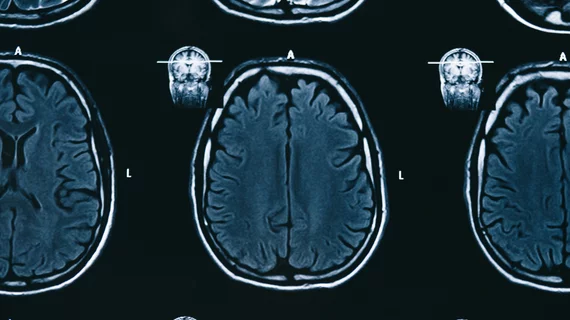A new deep learning tool can detect a dangerous neurological condition known as dystonia on MRI scans in under one second, according to new research. It may spare patients from unnecessary tests and exams.
Doctors at Massachusetts Eye and Ear—a Harvard-affiliated teaching hospital—detailed their platform, known as DystoniaNet, Monday in the Proceedings of the National Academy of Sciences. Dystonia impacts 35 out of every 100,000 people, causing involuntary muscle contractions that can lead to abnormal postures. Some patients suffer for a decade before receiving an official diagnosis.
Massachusetts General Brigham Innovation, a commercially focused medical group, helped develop the tool which keys in on a micro biomarker specific to the condition in 0.36 seconds. With further testing, the researchers hope to bring the patent-pending product to clinics.
“There is currently no biomarker of dystonia and no ‘gold standard’ test for its diagnosis. Because of this, many patients have to undergo unnecessary procedures and see different specialists until other diseases are ruled out and the diagnosis of dystonia is established,” senior author Kristina Simonyan, MD, PhD, an associate neuroscientist at Massachusetts General Hospital, said in a statement. “There is a critical need to develop, validate and incorporate objective testing tools for the diagnosis of this neurological condition, and our results show that DystoniaNet may fill this gap,” she added.
The AI-based method compared the brain MRI scans of 612 individuals, including 392 with three different forms of “isolated focal dystonia,” along with 220 healthy patients. It was 98.8% accurate at diagnosing dystonia, the authors noted, and helped spot a new microstructural biomarker of the condition.
While dystonia cannot be cured, study author Davide Valeriani, PhD, a postdoctoral research fellow in the Dystonia and Speech Motor Control Laboratory at Mass Eye and Ear, believes this novel platform can make a crucial difference.
“Our study suggests that the implementation of the DystoniaNet platform … would be transformative for the clinical management of this disorder,” Valeriani added. “Importantly, our platform was designed to be efficient and interpretable for clinicians, by providing the patient’s diagnosis, the confidence of the AI in that diagnosis, and information about which brain structures are abnormal.”

